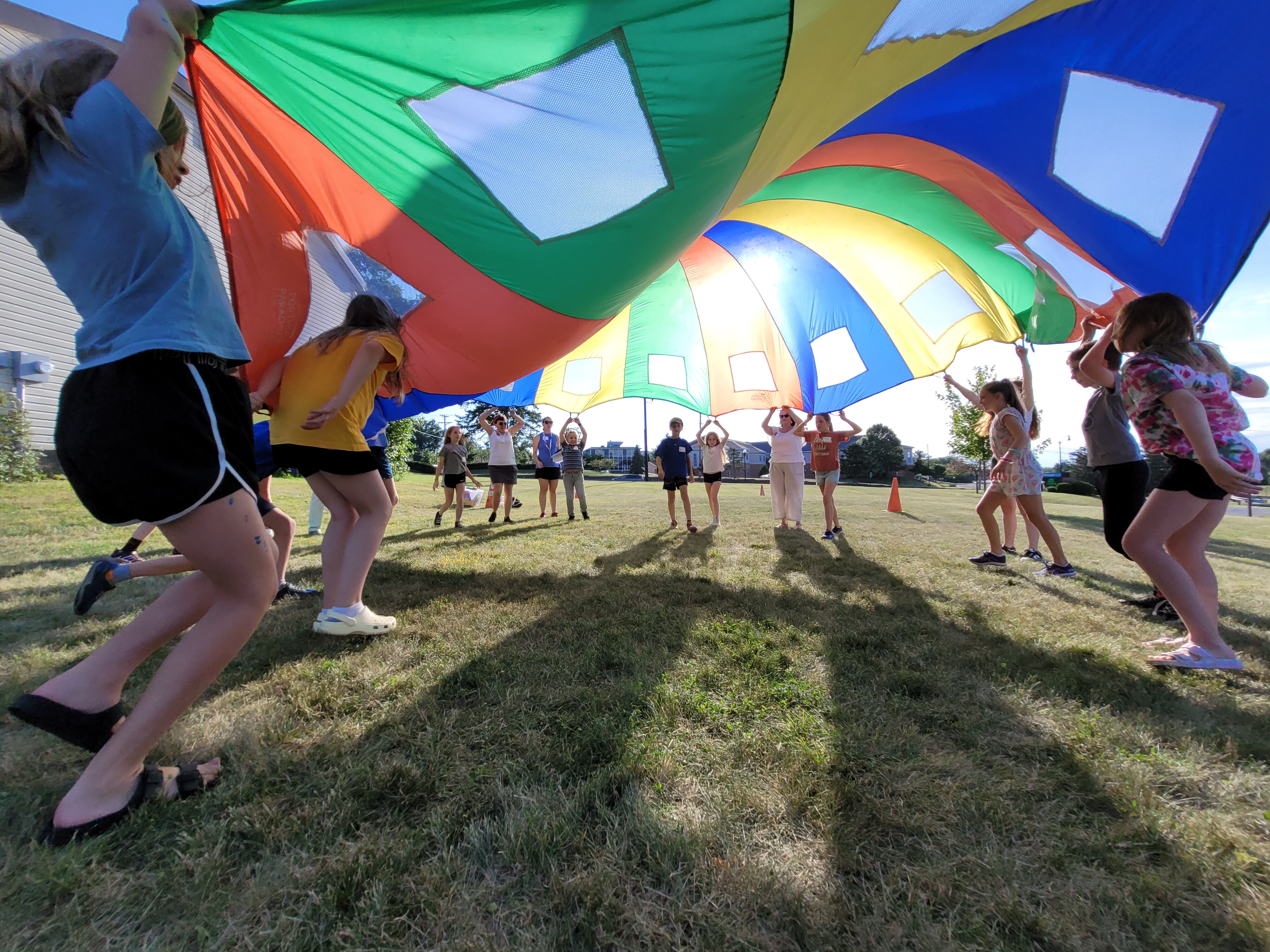Peace Is Not Optional

John 20 :19-31
Did you know Sunday worship has some optional parts? If you are observant, you might notice that we occasionally skip the creed or a lesson. Today we replaced the confession with a thanksgiving for baptism. But one thing we never forgo is the peace.
That’s because the peace has been a part of Christian worship from the beginning. We find it in our gospel lesson today. The disciples were gathered on “the first day of the week” – Sunday evening on the day of Jesus’ resurrection. Despite reports of Jesus’ empty tomb, the disciples were huddled inside, fearing the worst. Their leader had, after all, been executed at the hands of the political and religious leadership. One wrong move, and the disciples could be next.
In addition, the disciples also must have felt a great sense of guilt. They had failed Jesus, abandoning him in his hour of need. No wonder they didn’t want to show their faces.
That’s when Jesus miraculously showed up, saying… “Peace be with you.” The Greek word for peace, Eirene, comes from a verb which means, “To bind together that which has been separated.” Its literal meaning has to do with joining what has been divided, setting it to right. Peace is the opposite of division or dissension. It can connote both an outward absence of conflict or war, or an internal sense of rest, well-being, and harmony.
In Hebrew the word for peace is shalom, and it is used as a greeting.It conveys a desire for peace between people, and for personal health and wholeness.
When Jesus appeared, he offered this greeting, shalom, Eirene, peace. It was not only a greeting, but a sign of forgiveness. Jesus was saying, I greet you in peace – I do not hold against you what you have done to me.
Consider the importance of this moment. Jesus had trained these disciples for three years. Jesus knew his mission was to pass the ministry on to these disciples, and even told them that they would do greater things than he did. But there was no way to pass the ministry to these disciples, cowering behind locked doors. They had to get beyond their fear and their guilt. Peace was not optional – it was a necessity.
And so Jesus’ first words provide what the disciples needed: forgiveness for their failure to stand by him, release from their cowardice and their lack of faith. Then Jesus showed them his hands and side – a sign that it was not a ghost, or a spiritual version of himself, but whole and well, body and soul joined together again; a living embodiment of the literal meaning of peace, to bind together what has been separated. Jesus gives his disciples peace, and his presence which is peace.
The modern world is not so different than Jesus’ day: nations torn apart by greed and war; families separated by bitterness and broken commitments; people troubled by inner demons. We all need peace.
And perhaps that is why Jesus said “peace be with you” twice in this passage. The first time was for the disciples. But the second time was so that the disciples could pass the peace to others. Jesus said, “As the Father has sent me, so I send you.” Giving and receiving peace are linked, part of the same process. “Receive the Holy Spirit,” he said. “If you forgive the sins of any, they are forgiven them. If you retain the sins of any, they are retained.”
The disciples’ main tool for their work was forgiveness. Empowered by the Holy Spirit, Jesus’ presence living in them, they would be able to release people from the wrongs that imprison them and give peace to the troubled and ashamed. Jesus commissioned his disciples out to put the world back together, to join once again all that was torn apart.
Last week was the 30th anniversary of the Oklahoma City bombing. It was the worst act of domestic terrorism in the U.S., killing 168 people. I heard the story of Bud Welch remembering how he felt after learning that his only daughter, Julie, 23 years old, was killed in the bombing. He said, “I was so full of revenge and hate, didn’t even want a trial [for the perpetrators Timothy McVey and Terry Nichols]. I went to the bomb site every day after her death, my head splitting. I was self-medicating with alcohol, and finally, I asked myself: What do I need to do to move forward?”
Bud stopped drinking and smoking, and one day he saw Bill McVeigh, the father of Timothy McVey, on TV. Bill McVey looked directly into the camera, and Bud saw deep pain in his eyes. “I recognized that pain,” Bud said. “I knew I needed to tell him that I did not blame him for what his son had done. Three years later, I had that chance. When I did, all the sudden this tremendous weight was removed from my shoulders. I never felt closer to God than in that moment. I start feeling a little bit of peace, despite the fact I no longer have Julie.”
This is a modern-day story of sharing Jesus’ peace and the healing it brings. I always find stories like this incredible. How do people find the strength to forgive such terrible sins? The truth is, you don’t forgive out of your own strength. Peace and forgiveness are not things we can manufacture; they are a gift that we first need to receive ourselves. That’s why Jesus visits the disciples while they are still locked behind closed doors. That’s why Jesus says peace to them twice. Then Jesus empowers them with the Holy Spirit, breathing on them Jesus’ very life. That Holy Spirit is the spirit of Jesus, the disciples’ living connection to Jesus. It supplied what they need to share Jesus’ peace in a broken world.
We are Jesus’ modern-day disciples, called to share Jesus’ peace in the world. When we pass the peace each Sunday, we have the opportunity to remember this story from the Gospel of John and acknowledge our need for peace. The peace that we share is “the peace of the Lord,” Jesus’ peace. And when we share peace and forgiveness with others, whether in these moments in church, or in our daily lives, we do it because the Holy Spirit lives in us, empowering us to live and love like Jesus. It may take years to get to the place where we can truly share peace and forgiveness. But when we do, we experience a new level of healing ourselves, and sometimes we set someone else free.




Login To Leave Comment